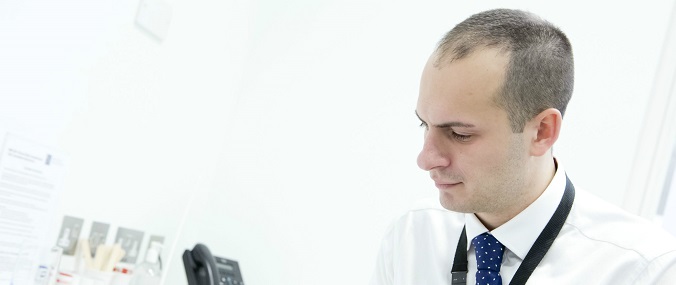Established in 1957, the RSC is one of Europe's oldest general practice sentinel networks. It is an active research and surveillance unit that collects and monitors data from over 2000 practices across England and Wales.
The RCGP collaborates with the University of Oxford, and UK Health Security Agency (UKHSA) in the running of the RSC.
Research Project Resources
These resources can be used by practice staff, GPs, PCN staff and others involved in primary care research. They include FAQs related to the projects that are run within the RSC, and a number of general resources that can be used for people looking to get involved with research more broadly.
If you have any questions, or would like to hear more about the research activities ongoing within the RCGP RSC or more broadly within the RCGP, please contact research@rcgp.org.uk
These resources are relevant if you are currently working on or are looking to get involved with any live RSC projects.
Virology and Serology
Practices submitting virology and serology sampling are important to the RCGP RSC, sampling allows us to monitor the spread of communicable and respiratory diseases across primary care. For more information please see the Orchid website.
Take a look at our Virology and Serology Dashboards to see what viruses are currently in circulation and vaccine coverage in England. Once your practice is signed up to the network, these dashboards can be personalised to allow you to track your practice’s sampling and results.
Workload
The first iteration of the workload observatory focuses on seasonal illness, and was developed in collaboration with NHS England.
The RCGP is now working with Oxford University to further develop the GP activity aspect of this analysis. To take it beyond crude activity and develop our understanding of the more complex aspects of workload and trends over time. Along with changing patient demand and related workforce need.
Social Prescribing
It is well established that 80-90% of health outcomes are linked to social determinants of health. These include health-related behaviours, socioeconomic and environmental factors.
Social prescribing aims to address social determinants of health. NHS England describes social prescribing as “a way for local agencies to refer people to a link worker. Link workers give people time, focusing on ‘what matters to me’ and taking a holistic approach to people’s health and wellbeing. They connect people to community groups and statutory services for practical and emotional support.” Social prescriptions are varied and include activities focused on:
- health,
- education,
- skills development,
- sports and leisure,
- art activities.
If utilised well, they can help to deliver several benefits to individuals and health and care systems including:
- giving a route for health and care systems to address social determinants of health,
- promoting self-care,
- building stronger communities,
- reducing healthcare service utilisation including GP appointments,
- secondary care referrals and accident and emergency attendances.
To support the roll-out of social prescribing, RCGP and University of Oxford have created a Social Prescribing Observatory. Historically, the RSC launched a project into Social prescribing, for more information on what we did, please view our webinar:
- Recording of Webinar on the Social Prescribing dashboard (video)
- Write up Social Prescribing webinar 12 October (PDF file, 441 KB)
Practice resources
These resources can be useful for your practice if you are looking to get involved in research, at any stage of your journey. We have also included some resources on how to shape your practice into a PCN and undertake research at a PCN level.
- Elective care transformation programme, best practice solutions - NHS England.
- Research at a GP Practice level - podcast from Ockham Healthcare.
- Research in General Practice - podcast from Ockham Healthcare.
- Top tips using social media as a GP practice - video from eGPlearning.
Primary Care Networks
- Mental health and primary care networks - Kings Fund.
- Life as a PCN manager - podcast from Ockham Healthcare.
- Can you turn around the health of an entire town? - BBC News article.
Contact RSC
If you have any questions, or would like to hear more about the research activities ongoing within the RCGP RSC or more broadly within the RCGP, please contact research@rcgp.org.uk.
Thank you for your feedback. Your response will help improve this page.
